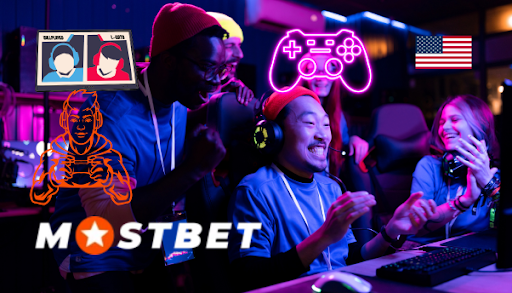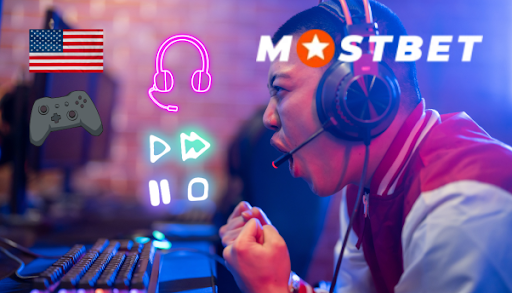News/Commentary
- Week 16 NFL Preview: Chargers Host Denver, Ravens Host Pittsburgh, Chiefs welcome Houston
- 2024 CollegeFootballPoll.com All-America Team (16th Annual)
- Virtual Reality in Games: Bridging the Gap Between Fans and Action
- The Role of AI in Shaping the Future of Esports: A New Era Begins
- Smart strategies for betting on the Super Bowl
- What Makes the Detroit Lions the Best Team In the NFL?
- FWAA 2024 All-America Team
The Role of AI in Shaping the Future of Esports: A New Era Begins
December 18, 2024 by Staff
Over the last few years, esports has rapidly gained popularity among millions of fans who are following fast-paced competitions, capturing gameplay within esports, or even betting on the outcomes. Now, all of this is fine and dandy on its own, but with the entry of AI tech into the fold.
With platforms that make Registration in Mostbet easy and accessible, enthusiasts can now join in on the action, enjoying a streamlined experience as they explore various betting opportunities within the esports world.
From betting on esports outcomes to tracking events like the UFC fight schedule, fans are finding more ways to engage with sports of all kinds, blending physical and virtual competition. Now, let's take a closer look at how this partnership is disrupting the industry.

The Role of AI In Esports: Elevating Gameplay
It is not just NPCs (non-player characters) that AI is helping run, it’s also revolutionizing the world of esports, bridging the line between real sports and virtual competition. Are esports real sports? This debate has been ongoing, yet with AI-driven tools, players can analyze gameplay as meticulously as any professional athlete.
These tools are being used by professional teams to gain an advantage, making practice a scientifically supported way to refine skills. And this level of analysis doesn’t just apply to players, either, fans and commentators are also catching on. Besides, AI has the ability to respond to what players are doing in a video game, so loads of things can happen when it comes to gameplay.
Fans, too, engage on a new level, as esports betting apps now harness AI to offer data-backed insights, catering to audiences interested in following and wagering on their favorite players or teams.
Game Development and Esports AI: Creating More Realistic Experiences
In game development, AI is ushering in a new era of realism and personalization. By simulating complex interactions, AI creates characters and worlds that feel authentic, responsive, and uniquely tailored to each player.
Below, we compare the major benefits and challenges of AI-driven game development, showcasing how this technology reshapes the gaming experience while introducing some trade-offs.
| Aspect | Benefits of AI in Game Development | Challenges of AI in Game Development |
|---|---|---|
| Realism | AI enables more lifelike characters with unique reactions. | Realistic characters require complex, high-powered algorithms. |
| Personalization | Tailors experience individual player choices and styles. | Can make games overly complex and difficult to balance. |
| Replayability | Adaptive AI offers new challenges with each playthrough. | Risk of predictable patterns over repeated gameplay. |
| Immersive Storylines | Creates branching narratives based on player decisions. | Requires significant resources to develop multiple outcomes. |
| AI tools can streamline parts of development, reducing time. | Initial AI integration costs can be high for studios. |
AI-Powered Anti-Cheat and Security Measures

Another issue that esports has always struggled with is fairness, and this is where AI comes into play as well. With millions of players worldwide, traditional anti-cheat measures are struggling to keep up. AI algorithms enable identification of cheating patterns that would have gone undetected by more manual methods through the detection of anomalous behaviors.
They evolve continuously, detecting new cheat methods and finding ways to negate them within hours of their discovery. AI not only aids in cheating prevention but also protects players and their fans. To track the online gaming environments better, there are platforms and game developers implementing AI to monitor toxic behavior in real-time, making sure it stays respectful and fun.
Enhancing Fan Engagement Through AI
AI is not only changing the way players are experiencing their gameplay, it is also completely overhauling fan interaction with esports. AI helps fans find new games, players, and tournaments that match their tastes by providing tailored recommendations.
Streaming services use AI to study viewer behavior in order to recommend content that keeps viewers coming back for a longer period and offers more personalized experiences. Picture a live esports event where AI automatically highlights the players or teams that you follow and root for, an entirely different experience.
Another AI-driven chatbot responds to questions and offers live stats that give fans more context without missing out on a minute of the game. This is aimed at making esports more accessible and enjoyable for everyone, from hardcore fans to casual audiences, promoting a colorful and diverse community around the sport.
The Future of Esports and AI: What Lies Ahead?
With the rapid growth of AI technologies, its participation in esports will only increase. There are even experimental AI-driven tournaments that push human-machine interaction to the limit as they compete against one another. This progression enhances esports predictions, offering fans and players a glimpse into outcomes driven by AI’s analytic power.
Some even speculate the possibility of AI creating brand-new games based on the data from the players, creating a game unlike any other that is able to give you an experience more tailored and with more energy than ever before.
In the future, this esports-AI collaboration will become increasingly able to produce games with more depth and intelligence. Fans will experience greater engagement and connection, while players will be equipped with more sophisticated training tools.